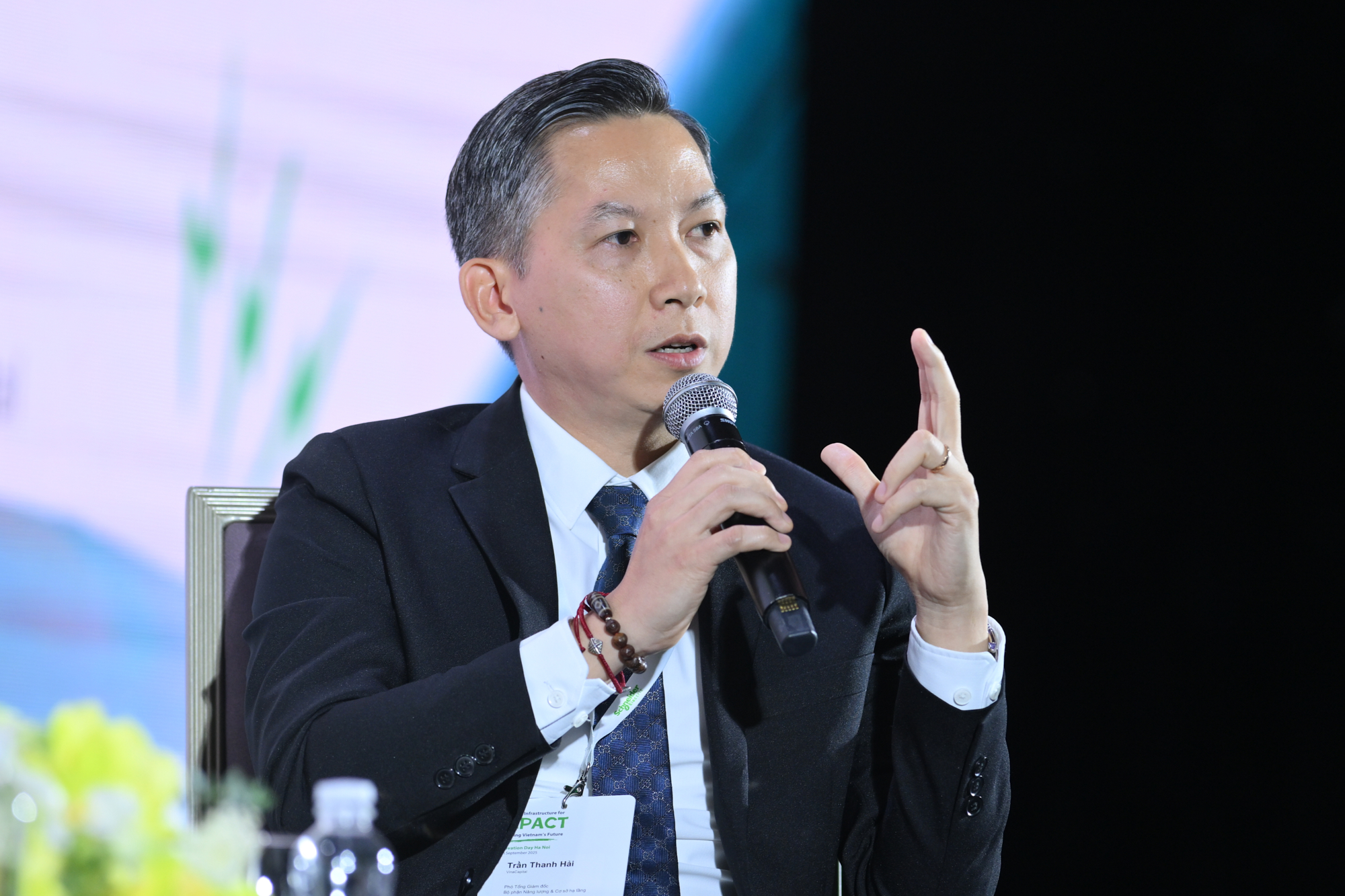The booming demand for artificial intelligence (AI) is reshaping infrastructure, including the construction and operation of data centers. Investors are primarily focused on hyperscale data centers, large-scale facilities with massive computing and storage capabilities and flexible scalability.
According to Tran Thanh Hai, deputy general director of VinaCapital's energy and infrastructure division, Singapore is no longer the region's most attractive destination due to land and power supply constraints. Instead, he observes a shift in data center investment within Southeast Asia.
 |
Tran Thanh Hai, deputy general director of VinaCapital's energy and infrastructure division, at the event. Photo: SE |
Tran Thanh Hai, deputy general director of VinaCapital's energy and infrastructure division, at the event. Photo: SE
"Investment in hyperscale data centers in Malaysia is slowing down. Vietnam is becoming an attractive destination for international investors," Hai said at the Innovation Day event in Hanoi on 17/9.
They are interested in the Vietnamese market because of its lower land and labor costs, and substantial reserves of clean energy, aligning with the future of green data centers.
"Investors from the US and surrounding countries all want to enter Vietnam," the VinaCapital representative said. Besides transportation, digital infrastructure has been identified by VinaCapital as a key sector in the coming years. Their goal is to attract a hyperscale data center to the country.
Internationally, once a country attracts one or two hyperscale data centers, other investors tend to follow. Hai cited Thailand as an example: after Google announced a $1 billion data center, many other companies also announced investment plans. TikTok plans to invest $8.8 billion, and Microsoft also declared its intention to open a data center there.
Therefore, if Vietnam successfully attracts one or two hyperscale data centers within a year, it will likely see a significant influx of other investors in the next three years.
XingJian Pang, general director of Schneider Electric for East Asia, agreed that Vietnam will be the next "home" for data centers. However, he pointed out that, like other countries before it, Vietnam must address the enormous electricity consumption demands of these facilities.
The International Energy Agency (IEA) predicts that by 2028, AI could account for 15-20% of total data center electricity consumption, a significant increase from 8% in 2023.
Pang suggested that smart and efficient power grid management is essential. For example, grid operators can integrate AI to analyze data from the power grid system, enabling real-time monitoring of energy consumption patterns and grid performance, while also forecasting fluctuations in electricity supply and demand.
In addition to power supply challenges, many businesses are concerned about power quality and are aiming for a green transition. Meanwhile, Vietnamese data centers are typically built near customers, primarily concentrated in Hanoi and Ho Chi Minh City. Finding sufficient land for renewable energy development within these two cities is not feasible.
Last year, the government issued a decree allowing direct power purchase agreements (DPPAs) between renewable energy producers and large electricity consumers. This opens up the potential for green data center transitions while creating opportunities for renewable energy developers. Vietnam's ambition for renewable energy is reflected in the adjusted Power Development Plan VIII, targeting 28-36% by 2030 and 74-75% by 2050 (excluding hydropower).
Domestic technology companies are also focusing on developing hyperscale data centers. Viettel commenced construction of a 140 MW data center last April and plans to upgrade another center to hyperscale status by 2030. CMC will build its first hyperscale data center with an investment of $250 million in Ho Chi Minh City in 2026. Next month, EcoDC will announce its investor, aiming to build another hyperscale data center, also in Ho Chi Minh City.
According to a May report by the Ministry of Science and Technology, Vietnam has 41 commercial data centers in operation nationwide, belonging to 12 companies, with a total design capacity of 221 MW. Pham Nguyen, general director of EcoDC, predicts that Vietnam's data center capacity will increase five to seven times in the next five years.
Tran Van Khai, deputy chairman of the National Assembly's Committee on Science, Technology, and Environment, said many investors and large technology companies will enter Vietnam. "Large corporations have plans to enter Vietnam. The accompanying infrastructure and ecosystem are essential. Investors need to prepare urgently to seize this opportunity," Khai said.
Thuy Truong












